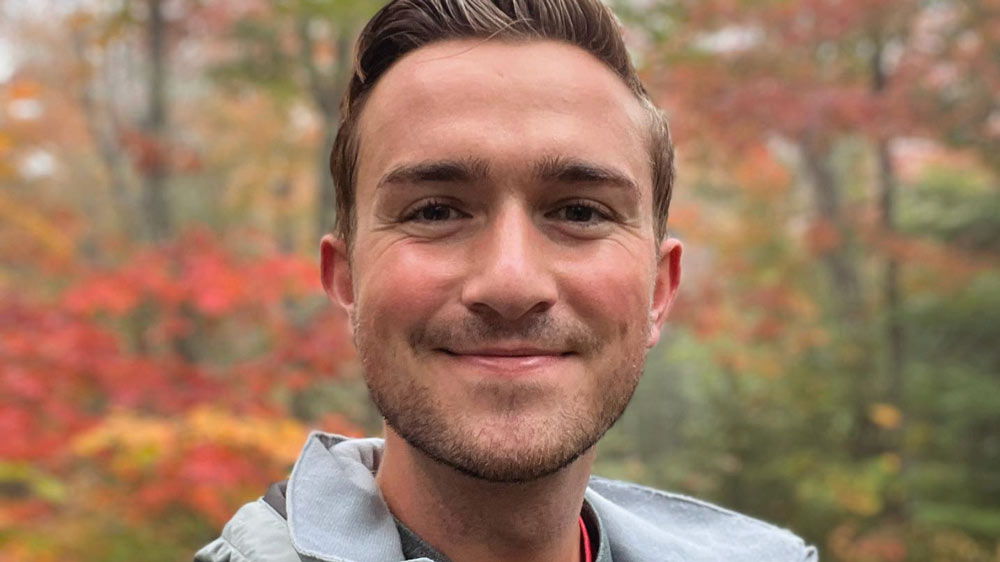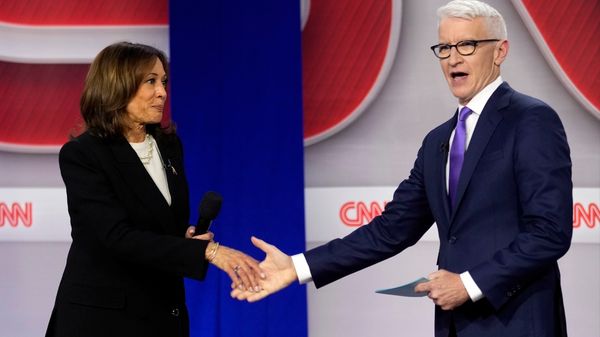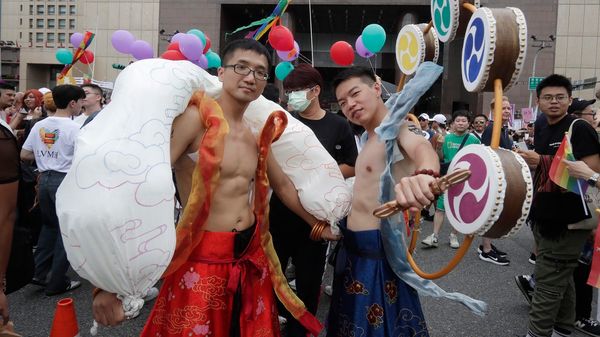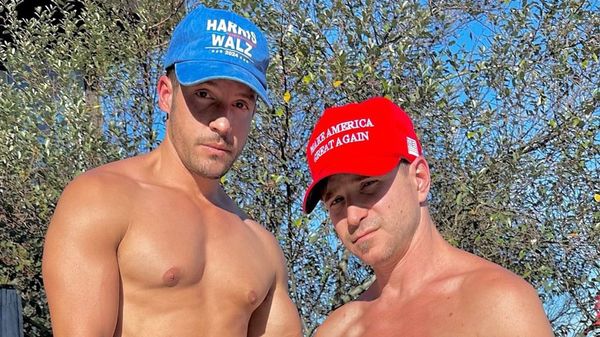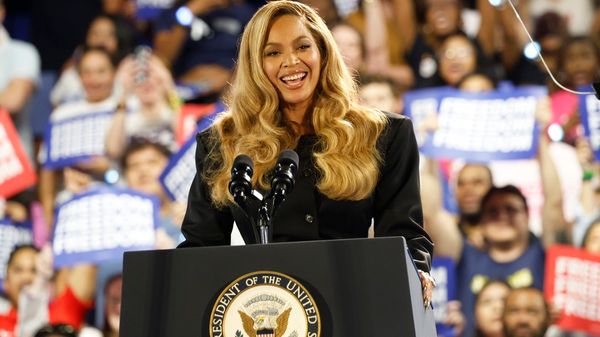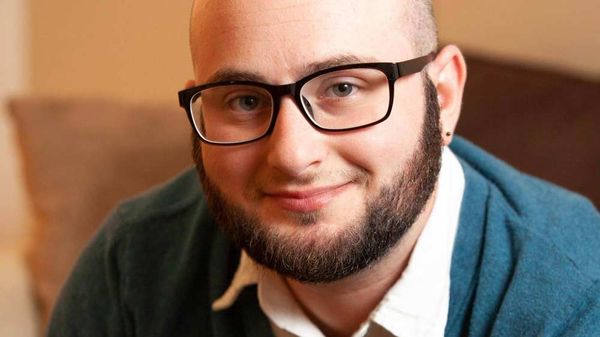August 9, 2007
Candidates court LGBT celebs
David Foucher READ TIME: 4 MIN.
In the run-up to the Aug. 9 LGBT-themed Democratic presidential debate on Logo, the campaigns of Sens. Hillary Clinton and Barack Obama made their latest play for the LGBT vote, announcing high-profile gay endorsements last week, The Clinton campaign won the support of Congresswoman Tammy Baldwin (D-Wisc.), while Obama picked up the support of New Hampshire Episcopal Bishop V. Gene Robinson. The endorsements follow earlier efforts by several of the candidates to win over the LGBT community, including the lists of prominent LGBT supporters released earlier this year by Clinton, Obama and former Sen. John Edwards.
In a conference call Aug. 2 with members of the LGBT press, Baldwin said that five of the eight Democratic candidates for the party's nomination had courted her for her endorsement, although she declined to say which campaigns other than Clinton's reached out to her. She said while she has "the highest respect" for all the Democratic candidates, two factors put Clinton over the top to win her support. And neither, really, had much to do with LGBT issues. One was her stance in support of universal healthcare. Baldwin will serve as part of Clinton's healthcare advisory panel as well as co-chair of LGBT Americans for Hillary.
"I also ... feel absolutely compelled by the issue of healthcare reform and universal healthcare," said Baldwin. "I just think it is absolutely unconscionable that we have nearly 47 million uninsured people in the wealthiest country on earth. And so, because of the senator's longstanding commitment to that issue, experience, and - somebody could say, when she first had a chance to work on this the Congress didn't pass it through, but I think she has learned so much from that - and then of course her service in the U.S. Senate, that we are really poised for an opportunity to get this job done under her presidency. And nothing could make me prouder than to work with her on universal healthcare in America."
The other factor was Baldwin's personal connection to Clinton. Back in 1998, during Baldwin's first run for Congress, Clinton traveled to Wisconsin to publicly support Baldwin's ultimately successful campaign. Baldwin was the first gay or lesbian person to win her first election to Congress as an out candidate.
"I'm grateful to her also on a personal level as a friend. And so it was such an easy choice given all of those factors for me," said Baldwin.
As far as LGBT issues, Baldwin said she believes Clinton has provided important leadership in support of the Employment Non-Discrimination Act (ENDA) and the federal hate crimes bill. Like the other frontrunners in the race, Clinton opposes civil marriage rights for same-sex couples but supports civil unions. Baldwin said she felt Clinton's other positions outweighed her marriage stance.
"The reasons I've stated for endorsing Hillary Clinton in aggregate far outweigh the wisdom or strategic advantage of picking a candidate based on one issue," Baldwin said. "And as I said, this battle is fought out predominantly at the state level. That's where we're going to win marriage rights."
Robinson threw his support behind Obama, citing his work as a community organizer and civil rights lawyer as well as his faith. Robinson did not return a call to comment for this story, but in a statement released by the Obama campaign he said, "Barack Obama sees beyond the partisanship and hopelessness that have dominated in recent years, and the movement he's building is bringing vital new energy and optimism into our democratic process. I'm excited to work with Barack to bridge the old divides and make this country one again."
The Obama campaign billed Robinson's endorsement as the first time the openly gay bishop had publicly endorsed a candidate for president. Yet Stephen Abbot of the NHReligion.com blog and other bloggers have pointed out that in 2004 Robinson supported Sen. John Kerry during the general election against President Bush. Based on his public statements, his support for Kerry was tepid at best, compared to his endorsement of Obama. During a speech at New Hampshire's Franklin Pierce College the month before the 2004 election, according to a story in the Monadnok Ledger-Transcript, Robinson accidentally referred to Kerry as "George Kerry" and said that there were similarities between the two candidates.
"The truth is neither one of these men is going to make us secure," said Robinson, according to the Ledger-Transcript. He later told the audience, "Both of their parties are telling bald-faced lies in their commercials."
John Marble, spokesperson for National Stonewall Democrats, told Bay Windows that his organization has worked over the last six months to have their staff, board members and supporters reach out to each of the Democratic campaigns and urge them to show their support for the LGBT community. He said they have let campaigns know that releasing endorsement lists is a strong first step but that to win over LGBT voters they must go farther, touting their support for LGBT causes to mainstream audiences on the campaign trail and outlining the specific actions they would take to advance LGBT rights if elected.
In 2004 during the primary, nearly all of the candidates made efforts to court the LGBT community, but the Bush campaign's use of civil marriage rights as a wedge issue prompted Kerry to tack right on LGBT issues, coming out in favor of the state amendments that would have banned civil marriage rights for lesbian and gay couples in Massachusetts and Missouri. Marble said Stonewall hopes to avoid that in 2008 by getting the Democrats to speak out early and often about their stance on LGBT issues, to lock them into pro-gay positions early in the campaign. Stonewall is also urging its supporters to get involved in the campaigns themselves on steering committees and as volunteers to make sure that the campaigns represent the interests of the community.
"[Getting LGBT people involved in the campaigns means that] it becomes a lot more difficult to run from issues that affect our families later in the campaign cycle. We think that's a good thing for the candidates," said Marble.
David Foucher is the CEO of the EDGE Media Network and Pride Labs LLC, is a member of the National Lesbian & Gay Journalist Association, and is accredited with the Online Society of Film Critics. David lives with his daughter in Dedham MA.
